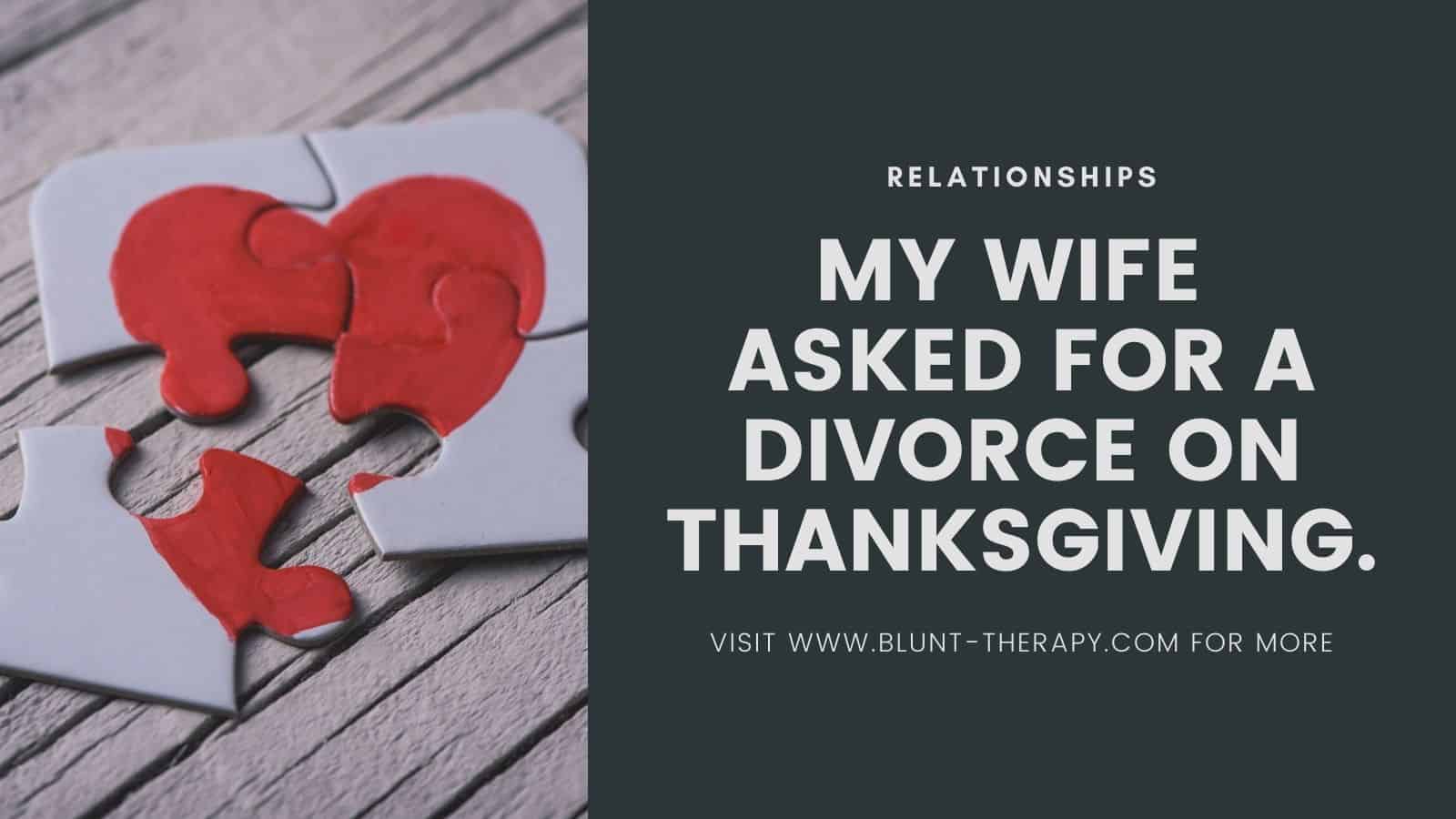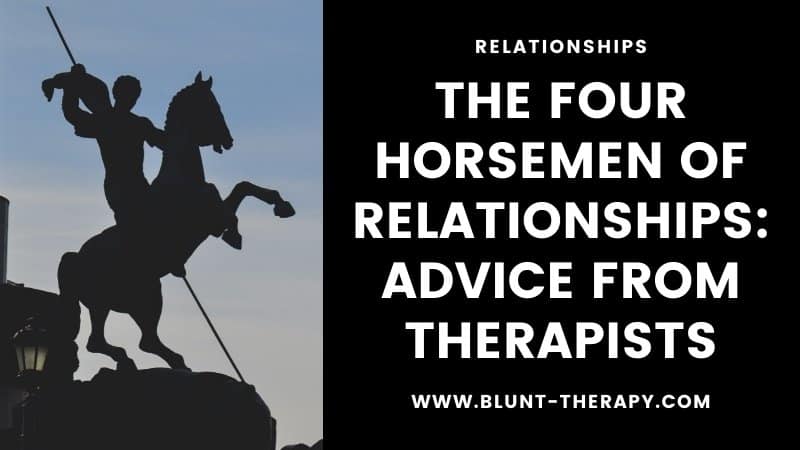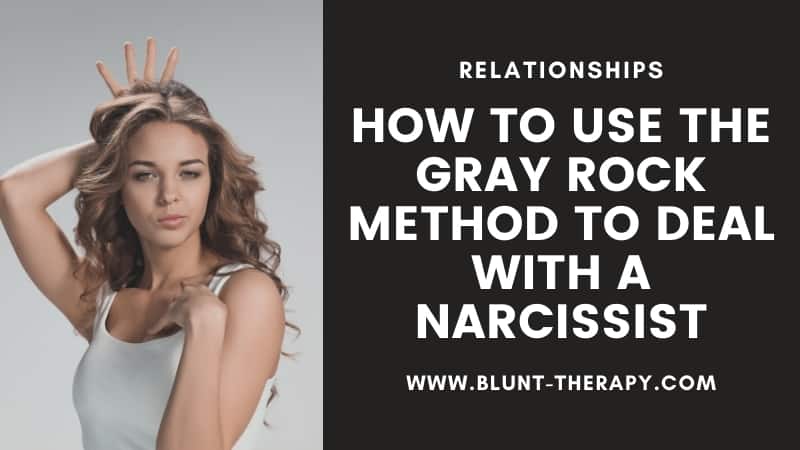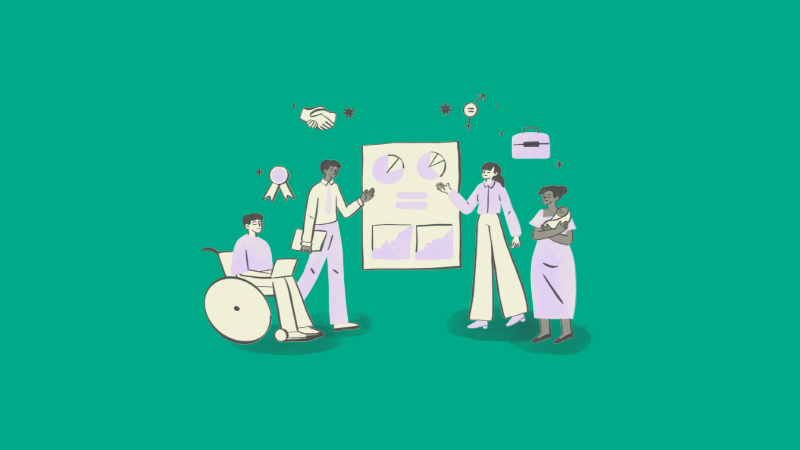Table of Contents
Affiliate link notice: As an affiliate of BetterHelp and other third-party vendors, We will receive compensation if you make a purchase using the links provided on this page. For more information, visit our disclosure page.
Last Updated on December 12, 2021 by Randy Withers, LCMHC
Before I started my training as a therapist, I had no idea what active listening was, let alone how crucial it is to communication.
Effective communication requires focus, concentration, and skill.
The good news is that anyone can start honing their active listening skills and build better relationships — here’s how.

What is active listening?
Active listening is a communication technique developed for use in counseling and mediation. An active listener has the ability to focus on the speaker, understand their message, comprehend their message, and respond thoughtfully and with compassion.
With passive listening, you might “hear” a person but fail to absorb and retain what they really mean.
You can’t be fully engaged without actively listening.
To do this, you need to
- Be 100% present (no multitasking)
- Offer space for the other person to fully express themselves
- Concentrate on what they mean
- Validate in your response
- Remember what was said
The goal is to ensure that the other person feels completely heard and that what they are saying is valid.
There are plenty of reasons for failed relationships, and sometimes they just end for no real reason. Don’t let poor communication skills sabotage yours.
You cannot truly listen to anyone and do anything else at the same time.
— M. Scott Peck, “The Road Less Traveled”
The Three A’s of Active Listening
Active listening requires energy and self-awareness. In order for it to happen, both parties need to be aware of their roles in the conversation, and 100% engaged in dialogue.
Here are three core components of active listening.
- Attention
Being present means putting in the effort to listen to your partner — not just the “words,” but their emotions, body language, tone, and meaning.
The idea here is not to “read their mind” but to try your best to understand.
A passive listener gets impatient for their partner to make a point, signaling this by interrupting or minimizing.
But the active listener uses that time to process the points, listens for key points, keywords, and summarizes the points such that they are able to confirm understanding.
- Attitude
If you arrive at the conversation feeling contempt, the real conversation will be over before it starts.
When you remove judgment and hostility first, you clear the space for your partner to just talk. You can agree or disagree, but do so only after your partner has spoken.
Never interrupt, and try to stop and reflect on what they have said before saying anything yourself.
A positive attitude and an open mind are crucial components of active listening.
- Adjustment
A good active listener understands that they can’t predict or control a conversation. It could start angry and turn to joy, or the other way around.
There’s just no way of knowing.
Thus, a good active listener requires both flexibility and patience, with the capacity to “go with the flow” to help the person who is doing the talking.

Verbal Active Listening Practice
Here are some specific things that you can do to show a loved one that they are heard.
Positive Reinforcement
Even if you don’t completely understand what your partner is saying, you can thank them for being open and honest.
Use their name, take their hand (if they want to be touched), and offer words of positive reinforcement.
Examples:
“Thank you for being open and honest with me.”
“I value what you have to say.”
“That’s an excellent point…I never thought about it that way.”
Remembering
We’re bad at remembering — this is just human nature, and some people are better at it than others.
But making a point of remembering the big conversations, remembering how they felt, and expressing this is huge. It shows you care enough to learn about them.
In addition, if someone is telling you something deeply personal (for instance), they are making themselves vulnerable, and this is scary. The person being vulnerable may fear rejection or minimization.
But one of the worst things you can do is forget how your partner felt or said at an important moment.
Summarizing what they said in your own words back to them can help you to retain and remember important information.
Ask Caring Questions
Asking relevant questions shows attention and care. Even if you don’t remember some details, questions can help you show them that you are interested and that you care.
This is not the place for accusatory questions, though, such as “why are you overreacting” or “why do you think this is such a big deal.” Even questions that might seem useful to you may come off as accusatory.
Be sensitive and appropriate. Make sure the questions make the other person feel safe enough to continue and keep the conversation flowing.
Use open questions to clarify and understand — that is, questions that require more than just “yes/no.”
A good open question might be “tell me what is bothering you right now” or “what can I do to help you right now.”
Reflection & Summarizing
When you repeat or paraphrase what the person just said, it shows that you are at least making your best effort to understand.
For instance, a partner is sad and angry as they tell you they’ve just been fired after working somewhere for 10 years.
You can reflect on their feelings by saying something like:
I’m hearing that you put all of this time and energy into this, and these people who should have been supporting you ended up betraying you.
If this is correct, the look of relief on their face should show you. If you are not, they will clarify, and the conversation will continue.
Either way, the fact that you were trying to understand their feelings in that moment will go a long way towards helping them cope with this stressful situation.
When people talk, listen completely. Most people never listen.
— Ernest Hemingway
Nonverbal Active Listening Cues
This is subtler than its counterpart but is just as important.
Most people read nonverbal cues automatically even if they don’t know it.
Examples of nonverbal cues include:
- Body language
- Posture
- Tone
- Eye contact
- This is always important, particularly in certain situations. If your partner is disclosing painful truths to you, it is often the best idea not to pierce them with a prolonged gaze. On the other hand, intermittent eye contact signals a lack of interest.
- Smiling
- While a reassuring smile is powerful, it can sometimes come off as condescending, and as such you should be mindful of your audience.
- Crossed arms
- Mirroring
- Fidgeting
This is not just about the signals that they are sending — but also the nonverbal cues that you are sending. For instance, if you are distracted and messing around on your phone, you are not showing them respect.
But a calm demeanor, a cocked head, and full eye contact show them you are fully present.
Also, be aware of what you are reflecting back to them (mirroring) and if this is appropriate. For instance, don’t smile if they are in pain, and vice versa.
If you want to improve your active listening skills, being aware of your loved one’s body language and your own is an essential practice.
Listening is a magnetic and strange thing, a creative force. The friends who listen to us are the ones we move toward. When we are listened to, it creates us, makes us unfold and expand.
— Karl A. Menniger, psychiatrist
Get Help Improving Your Relationship Through Better Communication
All relationships have some rocky times, but the ability to communicate in healthy ways is truly what can make or break any relationship — not just the romantic ones.
Communication problems are the proverbial canary in the coal mine.
We have an obligation to listen to the needs of our loved ones, to make them feel seen and validated. And we all need help with this from time to time.
If you’d like to learn how to improve your relationships even more, try BetterHelp, the #1 online counseling platform. Click here to get a discounted rate.
References
- How to Practice Active Listening
- Important Active Listening Skills and Techniques
- 10 Steps To Effective Listening










Thanks I am a mother and very busy! This helped me alot!
As a mother this article help me alot thanks.keep sahring
I’m glad you found it helpful!
Everyone should have this sort of skill. End of the day, if you start listening correctly, many problems will be solved that often cause issues. I appreciate your work as you have presented the facts properly here.